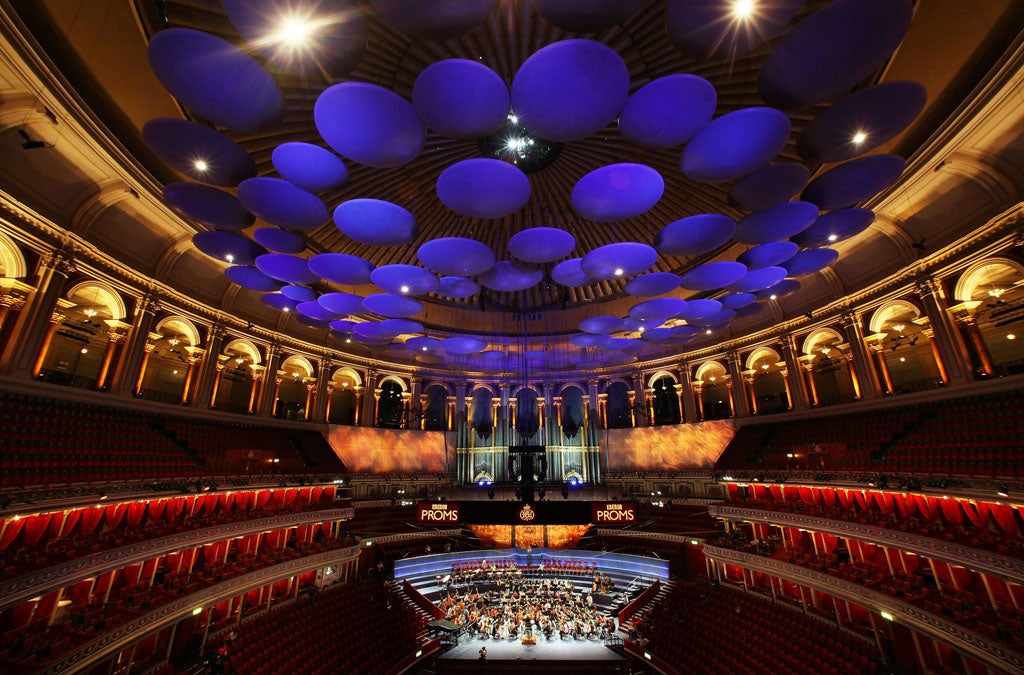'Ow 'Liza and the BBC Proms is doing 'My Fair Lady'?

Eliza Doolittle will screech in Cockney and sing posh as the quintessential London musical "My Fair Lady", a product of the Broadway stage, makes its BBC Proms debut on Saturday in a lavish production that owes a debt to Hollywood.
A starry cast including West End regulars Annalene Beechey as Eliza, Anthony Andrews of "Brideshead Revisited" fame as speech instructor Professor Henry Higgins and Alun Armstrong as Eliza's philandering dad will be backed by a 70-piece orchestra conducted by musical-revival specialist John Wilson.
Wilson, who has a CD coming out in October of "Rodgers & Hammerstein: At the Movies", relishes the challenge of making "My Fair Lady" come alive in the cavernous space of the Royal Albert Hall on the opening weekend of the summer-long festival.
"The reason for choosing 'My Fair Lady' is that the theme running through the Proms season this year is London, because of the Olympics...and it's perfect from every angle. I've known and loved it all my life," Wilson said.
But isn't it - wasn't it - written by Americans, based on the play "Pygmalion" by the playwright George Bernard Shaw who was himself...Irish?
"It is essentially by Americans but Alan Jay Lerner (books and lyrics) was an American who was a lifelong anglophile and Frederick Loewe (music) was an American who was born Viennese and was essentially writing in a hybrid light operetta American musical comedy tradition.
"The play is about the power of language defining (English) classes, but I've always said this is an American musical. We've got an American choreographer and we'll be playing this in a very Hollywood-Broadway idiom. So I'd say it's a very happy marriage of the two," Wilson told Reuters in a telephone interview.
The Hollywood angle arises from Wilson's decision to use the lavish orchestrations arranged by composer-conductor Andre Previn for the 1964 Hollywood film rather than the original orchestrations from the smash 1956 Broadway hit, which was for a pit orchestra about a third the size.
"I loved Andre Previn's adaptation of the score for the film," Wilson said.
"I think it was (film critic) Pauline Kael who said the film was the stage show embalmed and while that may not necessarily be a good thing, what it means is that the songs and dance routines very faithfully follow the theatre version. So we're using the theatre script but the orchestrations from the film which are much more luscious and call for an orchestra of 70 rather than 26."
So there's no doubt the music will be heard in the sometimes iffy acoustics of the 6,500-seat Royal Albert, but what about the musical itself? How has it held up more than a half century since its sensational Broadway premiere, with Rex Harrison as Higgins and the then little-known Julie Andrews as the Cockney flower girl with the dirty face and ragged clothes whom Higgins transforms into a woman with the style and speech of a duchess?
The original Broadway production had lyrics and touches, including a high-speed tape of women's voices nagging the misogynist Higgins, that were over the top even in the pre-feminist '50s.
PUTDOWN OF WOMANKIND
It's hard to imagine anyone today singing the lyrics from Higgins's putdown of all womankind, "A Hymn to Him", without raising a few hackles:
"Why is thinking something women never do?
Why is logic never even tried?
Straight'ning up their hair is all they ever do.
Why don't they straighten up the mess that's inside?"
Beechey says Eliza "gives as good as she gets" and triumphs by becoming independent of Higgins, who thought - not having any understanding of the gentle sex - that if he pulled the guttersnipe out of the gutter he could control her, too.
"She's a trailblazer, she was ahead of her time and I love that. She's so courageous and very bright and she changes everybody she comes in contact with, everybody that she meets, so it's fascinating to play," Beechey said in an interview before rehearsing the part last week.
But what of the appeal today of a half-century-old musical, set in Edwardian England, using no electric guitars or keyboards, no acrobats, gymnasts, trapeze artists or roller blades, and firmly rooted in the old operetta-Broadway tradition? "Rain in Spain", "I've Grown Accustomed to Her Face", "Wouldn't It Be Loverly", "I Could Have Danced All Night" and "On the Street Where You Live" notwithstanding, is this not a dinosaur?
Perhaps the answer came at the box office where the seats were sold out in two hours, leaving only the standing room "prommer" tickets for sale on the night.
"The musical journey is just perfect, I'm not aware of any other score that so perfectly matches the character's growth in the vocal range," Beechey said. "And the songs, they're in everybody's psyche, aren't they?"
Reuters
Join our commenting forum
Join thought-provoking conversations, follow other Independent readers and see their replies
Comments